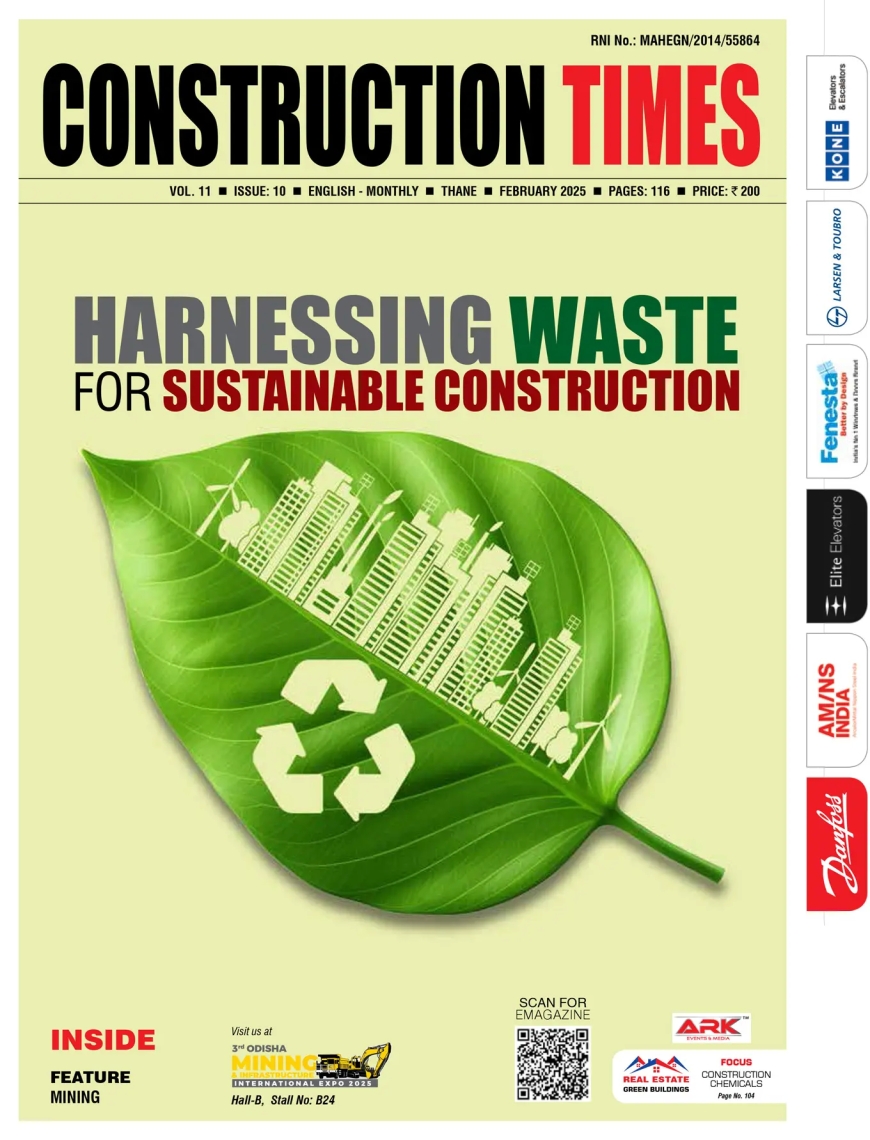Globally NEC is a leading ICT solution provider for smart city projects.
NEC is committed to government of India's '100 Smart Cities Mission' to modernize / transform urban infrastructure through usage of ICT. - Sandeep Khurana, Chief Technology Officer- NEC Technologies India Pvt Ltd Could you brief us on NEC and its activities in India, especially NEC's core strengths and competencies? NEC has been


NEC is committed to government of India's '100 Smart Cities Mission' to modernize / transform urban infrastructure through usage of ICT.
- Sandeep Khurana, Chief Technology Officer- NEC Technologies India Pvt Ltd
Could you brief us on NEC and its activities in India, especially NEC's core strengths and competencies?
NEC has been at the forefront of supporting India's goal towards realising smarter society while adhering to sustainable development goals. NEC's technology solutions are spread across multiple areas in government as well as enterprise business resulting in enhanced customer experience and operational efficiency. Few examples are:
Governance - NEC is proud to support Indian government flagship 'Digital India' initiative. In this context, we are supporting some of the transformational projects e.g. NEC is biometrics technology service provider for India's National ID project. NEC's digital governance platform 'Strive' is backbone of a Government agency CSC, to support 'Financial Inclusion', e-services to rural and remote locations in India.
Safe City & Smart City -NEC is helping India solve its urban infrastructure issues by participating as System Integrator (SI) for ICT solutions in various safe city and smart city projects. Under this program, NEC has implanted Bus Rapid Transport (BRT) solutions for five different cities in Western / Southern part of India, surveillance solutions (as part of safe city initiative) in one part of NCR region, Gujarat and also other smart city projects around Mumbai region.
Submarine - NEC is supporting to build India's strategic communication links using world class undersea cables technology.
Logistics -NEC is supporting India's efforts to improve 'Ease of doing Business' with its technology solutions for logistics infrastructure. In collaboration with NICDC, NEC has implemented 'Logistics Data Bank (LDB)', a Pan-India logistics visualization solution for six of India's industrial corridors which enables container tracking across all Indian sea ports.
Aviation -Using its flagship biometrics technology (Facial Recognition), NEC is supporting Government of India's initiative to digitalize its aviation infrastructure. NEC is implementing Biometrics Boarding System at four Indian Airports (Varanasi, Kolkata, Pune and Vijaywada) in a bid to improve experience and security as India is among the world's fastest growing aviation market.
Big Data analytics and advancements in computation & communication systems have had a huge impact in almost all business verticals. What has been the impact of the same on conception / development and construction of Smart Cities?
The conception and development of smart cities has been made possible because of advancements in ICT. Taking an example of ICCC (Integrated Command & Control Centre), which is the nerve centre of any city, it is able to communicate with thousands of IoT devices installed across the city in-order to gather real-time data from sensors - sensors across traffic junctions, security hot-spots, transport infrastructure including bus stops, water stations, sanitation and recycling, street lights, weather stations and many more. This in turn allows city government to gather and monitor, in real-time, any form of events through these sensors and sophisticated big-data analytics engines in ICCC, analyses these events, correlates them, allows city government staff to plan preventive and prescriptive measures.
This reduces the response time of the city authorities and creates a safer environment for the public residing in these cities.
How do you assess the current development of 'Smart Cities Mission' of the government of India? What contributory role NEC has been playing in this area?
NEC is committed to government of India's '100 Smart Cities Mission' as pan-India mission to modernize / transform urban infrastructure through usage of ICT. Besides, smart city mission, NEC is keenly looking at opportunities to support other smart city projects e.g. heritage cities, Smart cities under NICDC etc. As we observe the mission, we understand that the progress of many cities has been satisfactory. Newer cities are learning from the previous projects and adjusting the ICT requirements and project goals based their future needs too.
As we move ahead, we are also learning from our previous projects. We are constantly innovating not only terms of technology solutions but also in term of operational processes to ensure the success of cities in adopting to newer systems and effectively leverage technology.
As stated before, NEC has executed multiple BRT projects, safe city and surveillance projects as part of smart city projects. In some cities, NEC is providing the data centre solutions for smart city ICT needs. In some of the cities like Kalyan Dombivali, we are master system integrator.
Could you cite couple of examples for the sort of solutions NEC has provided in Smart City projects in India?
Globally NEC is a leading ICT solution provider for smart city projects. Leveraging our global presence and solution stack, NEC is looking at India as MSI for smart city projects. Some of our leading solutions for smart city include Transport Solutions (e.g. BRT solutions), Surveillance and Traffic Management Solutions, Integrated Command and Control Centre (ICCC), Data Centre Solutions, Big Data Management and Analytics Platform etc. Besides its own solutions, NEC also has strategic alliances with OEMS for some of the other smart city components which helps us to uniquely position ourselves as technology led solution provider for smart city projects in India.
Tell us about the FIWARE-based smart cities platform in India that you have recently launched?
FIWARE is an OpenSource project, which is European Union Funded and supported initiative to promote standardization across device OEMs and application developers to promote best practices across cities in Europe. It also helps cities across a nation to implement a 'Common Data Model' which helps Federal Governments to have better insights to city performance on various parameter and based on that standardize operation processes. Hundreds of cities - small and large, across Europe and now outside Europe in some other continents are now leveraging standardization promoted by FIWARE and they have built up their smart city platform and applications on FIWARE.
NEC has been a platinum member in FIWARE community and is actively supporting its activities. In 2018, NEC launched a FIWARE Lab node in India, which is the first of its kind lab node outside of Europe. This has been launched in India to encourage application developers, solution providers, government bodies and academia to experiment and innovate with FIWARE based solutions for smart cities.
NEC Technologies India signed a MoU with CSIR? Could you give some insight into the partnership and its development?
In December 2019, NEC partnered with CSIR (Corporation and the Council of Scientific & Industrial Research) to develop solutions using Big Data analytics and high-performance computing. NEC has one of the world leading vector computing technology which offers a promising platform for research community to access high performance computing for their AI/ML and traditional scientific algorithms. Researchers across the world engaged in diverse research across areas like energy, healthcare, agriculture, weather, oceanography and water, and social security etc. are leveraging NEC's HPC and AI/ML Solutions.
What is your take on e-waste management? What are the steps initiated to ensure the same in India?
India is among the top 5 countries in terms of e-waste generation, of which only 15-20% is documented and processed. Soon we will enter into an era, where quantity of e-waste generated will overpower the quantity of other forms of dry waste like paper and metal. However, in India, more than 90% of the e-waste is processed and recycled in informal sectors using crude and elementary methods, which result in damage to the environment, non-efficient and low recycling outputs and most of all, severe health hazards to the people working in these informal setups. E-waste management is going to be one of the main areas of focus of Indian government and other organizations in coming years. With the release of e-waste management rules in 2016, we have taken a positive step towards tackling this issue. Given the current circumstances and industry ecosystem in e-waste management in India, it is really difficult for organizations to convert this opportunity into a running business.
NEC is currently exploring this industry to identify new recycling technologies, partnerships models, business models and how we can support the value chain to help convert these informal sectors into formal ones, all of this will be step one in our fight against e-waste in India.
What is your roadmap for the Indian Smart City Projects? How do you assess the future trends?
I would like to reiterate this point. NEC is committed to govt of India's various smart city initiatives and would continue to build local as well as leverage global technology and solutions for the same. We intend to increase our penetration in both safe city and smart city projects with our best in class solutions.
As we see, next wave of smart city projects will have cities re-prioritizing their ICT needs - transitioning towards technologies like Cloud, AI/ML and Blockchain etc. This will help them to accelerate the project implementation, have scalable and secure infrastructure and build smart process /applications with ICCC. We also see that gradually, standardization in Data Models will be coming up to allow Cities to leverage each other best practices and applications.
Hits: 289
















